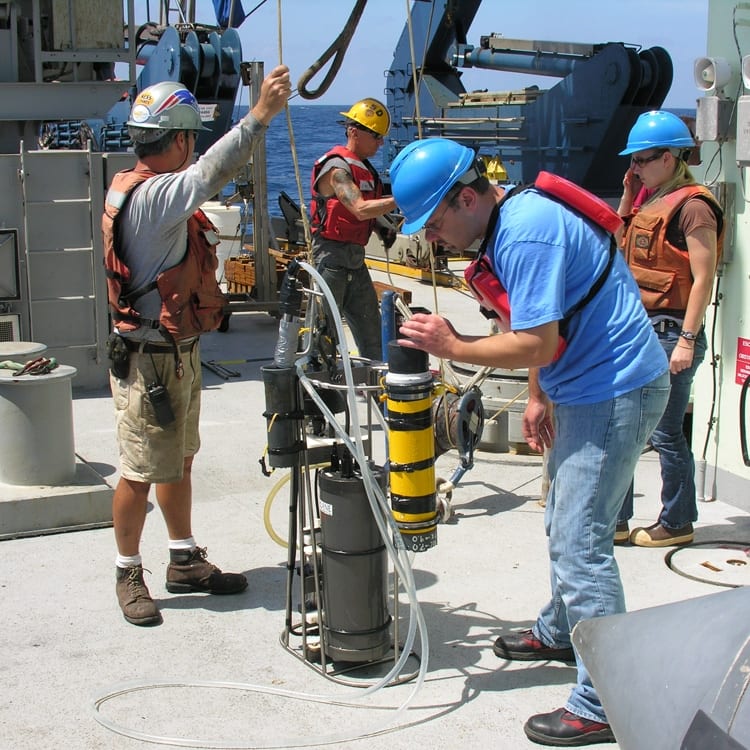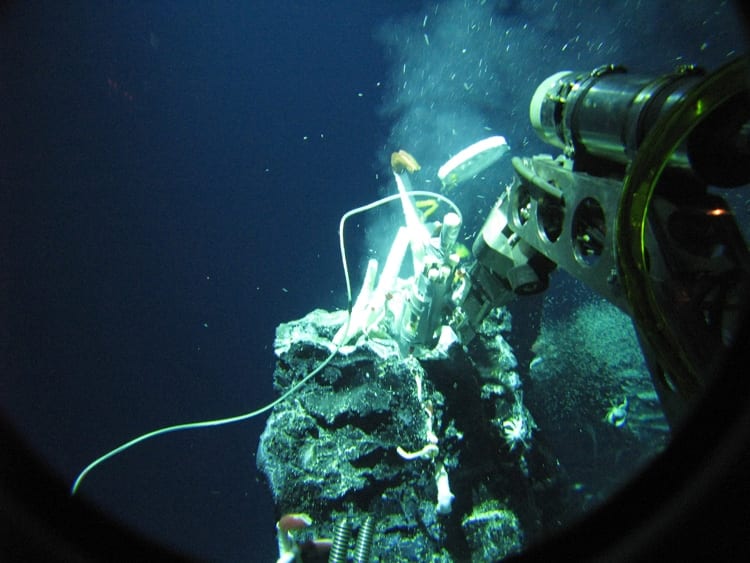NSF Announces Major Awards for Biodiversity Research, WHOI Scientists Selected
October 31, 2011
The 1977 discovery of deep-sea hydrothermal vent ecosystems that obtain energy through chemosynthesis rather than photosynthesis greatly expanded the perception of life on Earth. However, an understanding of their underlying microbiology and biogeochemistry still remains elusive.
A newly funded project, one of several major awards announced by the National Science Foundation’s (NSF) Dimensions in Biodiversity research program, stands to change that through a multi-disciplinary, international collaborative research effort led by Associate Scientist Stefan Sievert of the Woods Hole Oceanographic Institution.
“This is a great opportunity to advance our understanding of deep-sea hydrothermal vent microbial communities and their global impact,” said Sievert. The project includes collaborations among researchers from four US institutions, including chemist Jeff Seewald and biologist Craig Taylor from WHOI, as well as researchers from France, Germany, and China.
The team will conduct laboratory and field experiments to study microbial interaction and the biogeochemical cycling of carbon, nitrogen, and sulfur associated with chemosynthesis at hydrothermal vents. These experiments, in combination with a suite of cutting edge analytical techniques, will create unprecedented opportunities that will lead to unique insights into the functioning and environmental interactions of deep-sea vent microbial communities.
To increase the public awareness of these unique environments, Sievert and his colleagues plan variety of educational and outreach activities aiming at a diverse audience ranging from grade 4-12, community colleges, and undergraduate universities to the general public. The group’s 2013 research cruise to the vent sites at 9ºN on the East Pacific Rise, including a vent known as “Crab Spa” will be featured on WHOI’s Dive and Discover website, which provides middle and high school students and the interested public with daily updates from sea, videos, slideshows, and interactive learning modules, enabling them to witness scientific exploration in near-real time.
The Woods Hole Oceanographic Institution is a private, independent organization in Falmouth, Mass., dedicated to marine research, engineering, and higher education. Established in 1930 on a recommendation from the National Academy of Sciences, its primary mission is to understand the ocean and its interaction with the Earth as a whole, and to communicate a basic understanding of the ocean’s role in the changing global environment.


